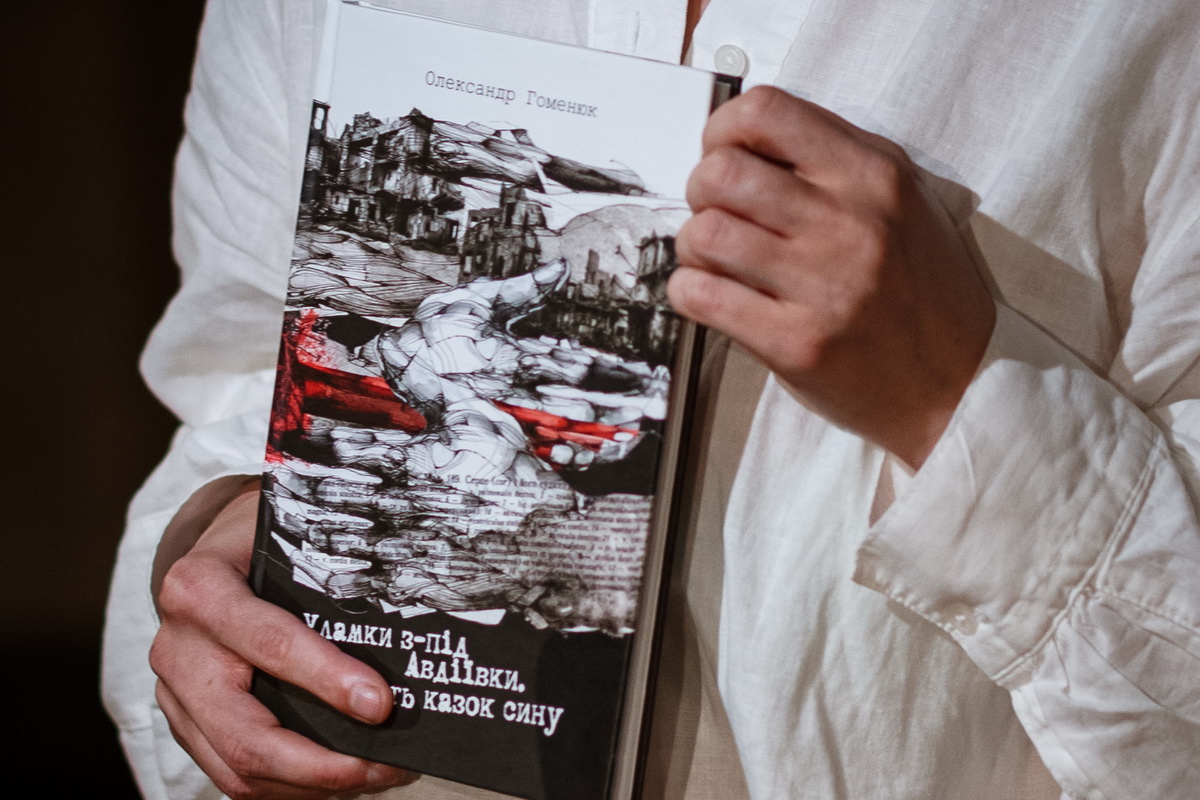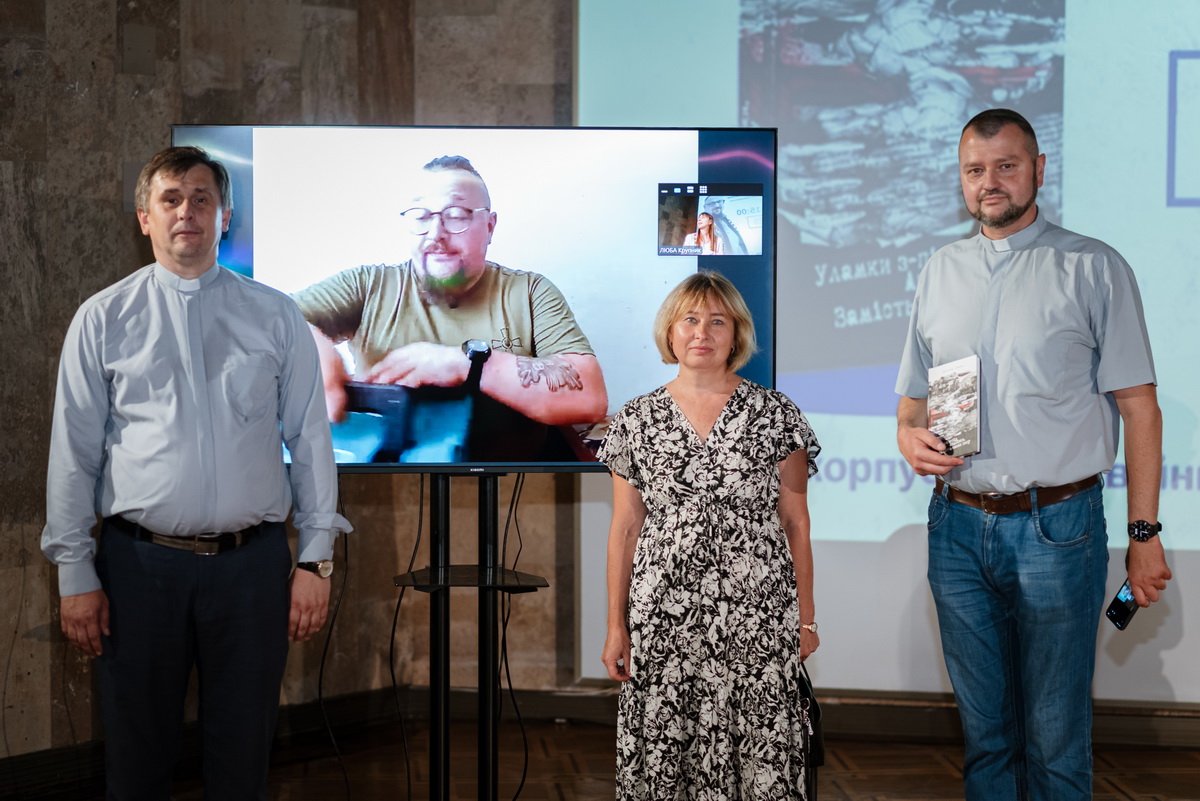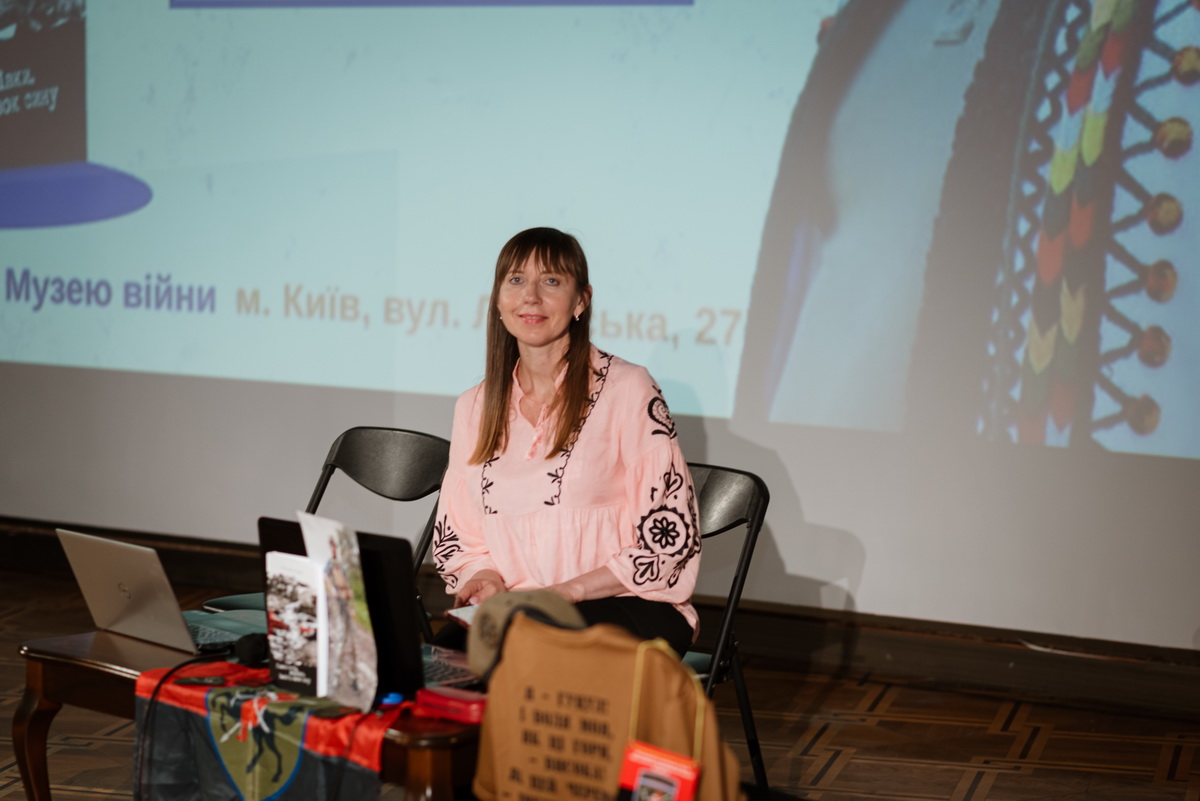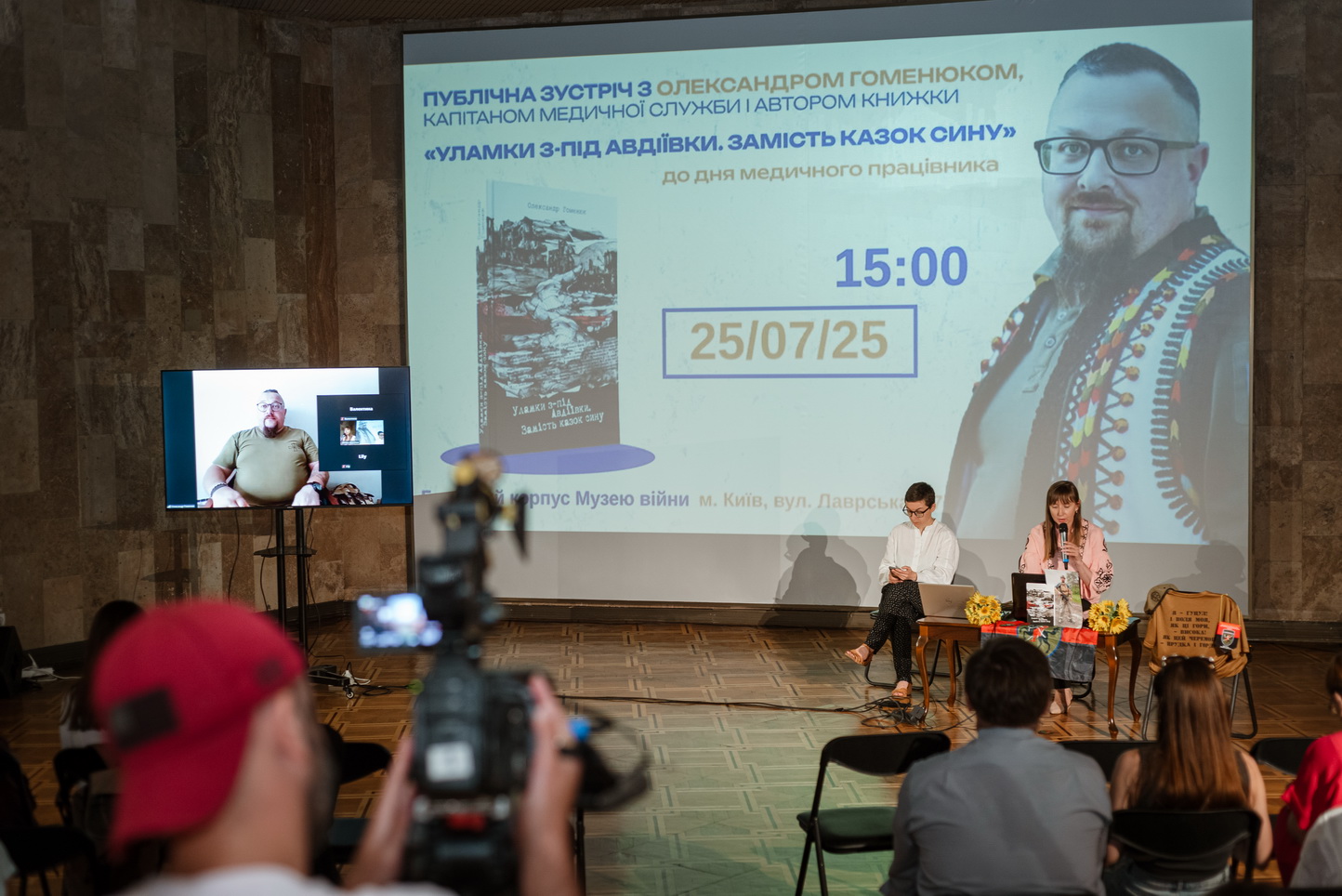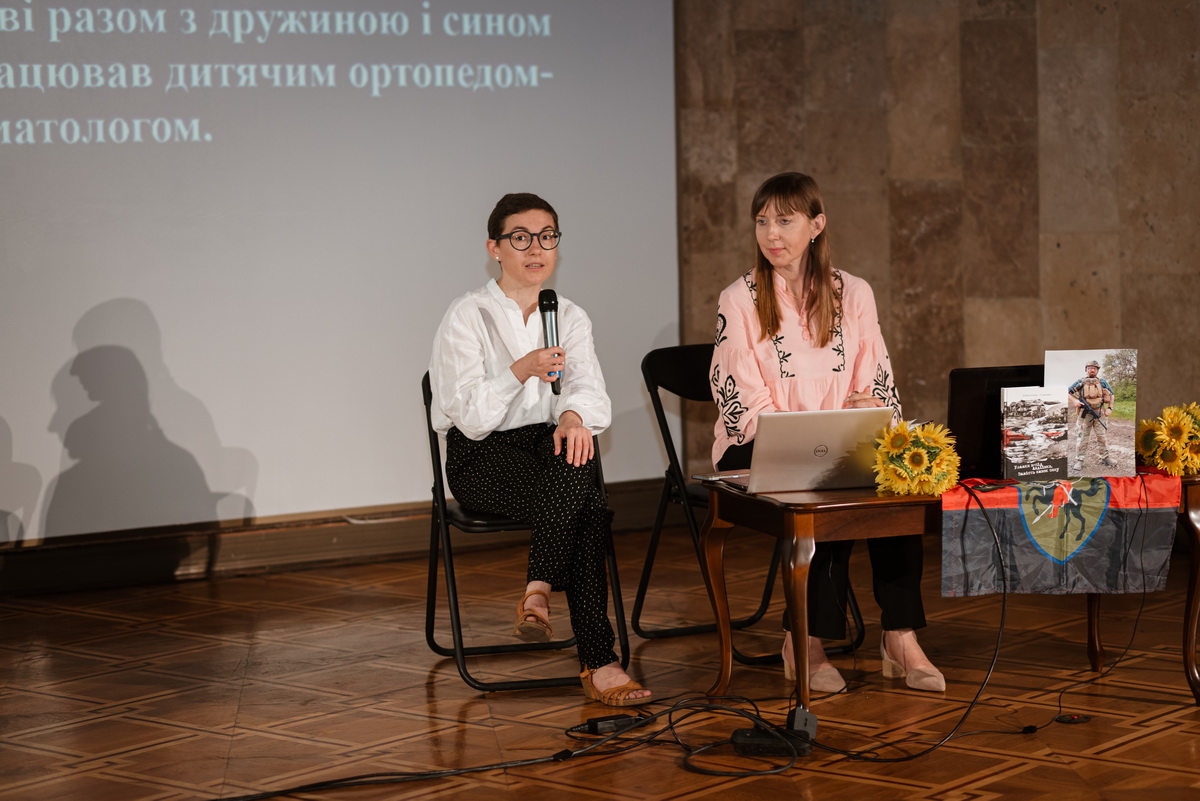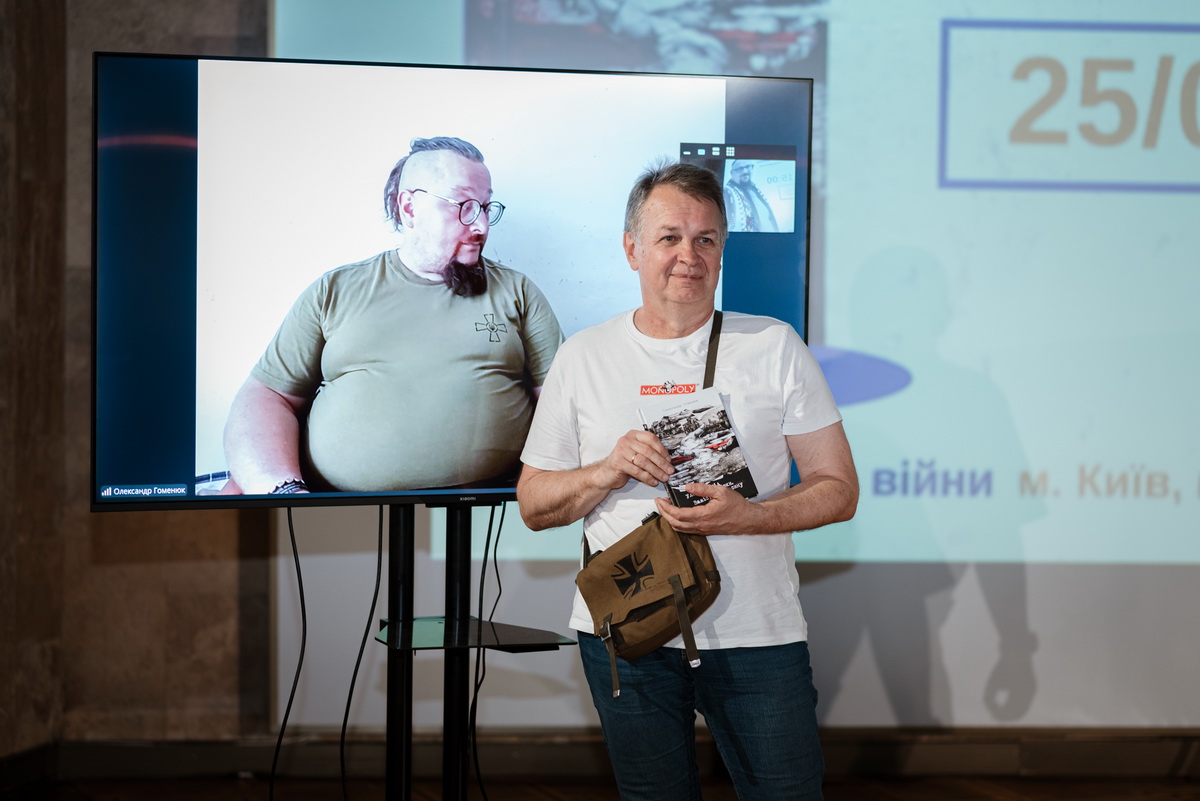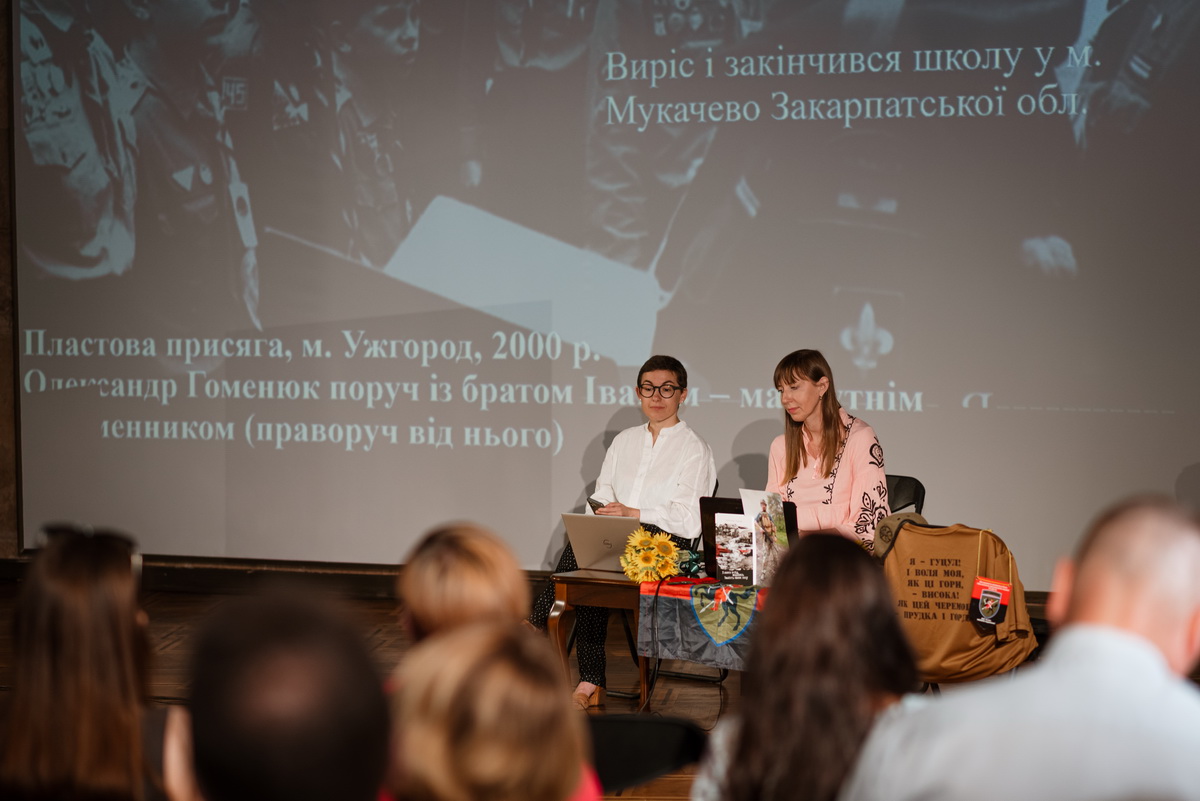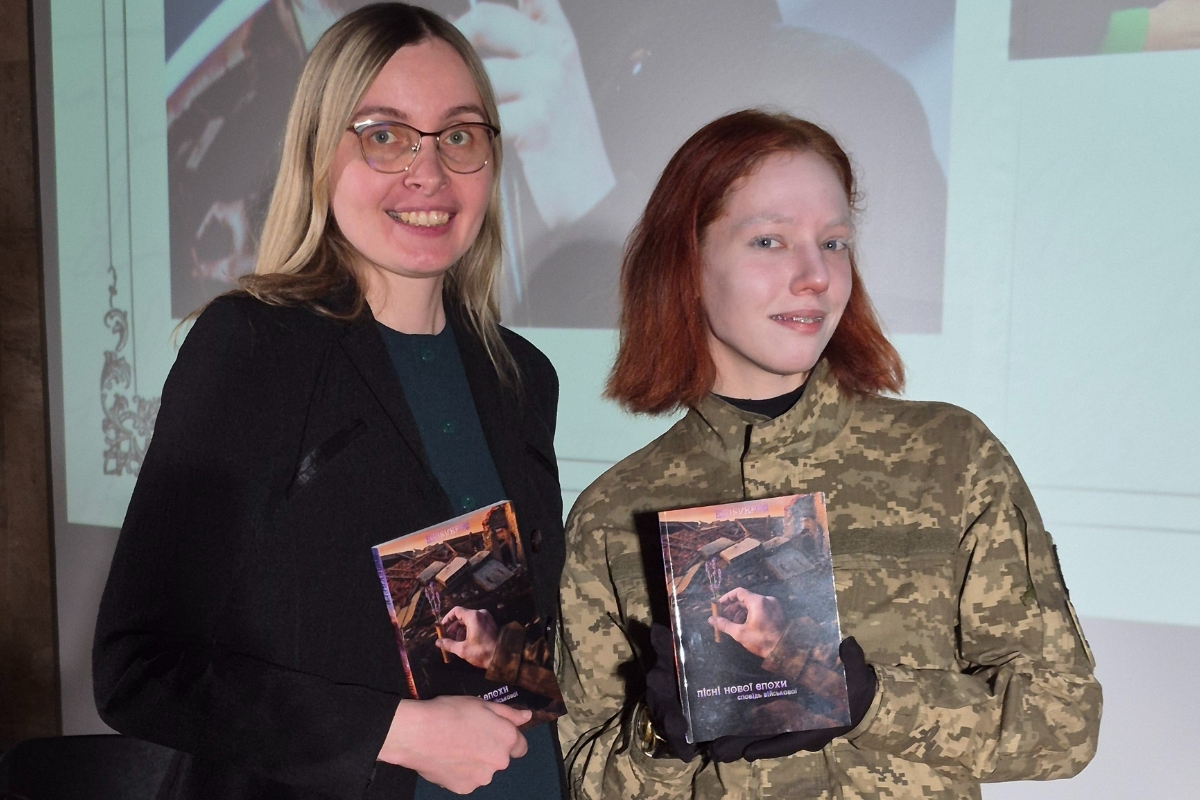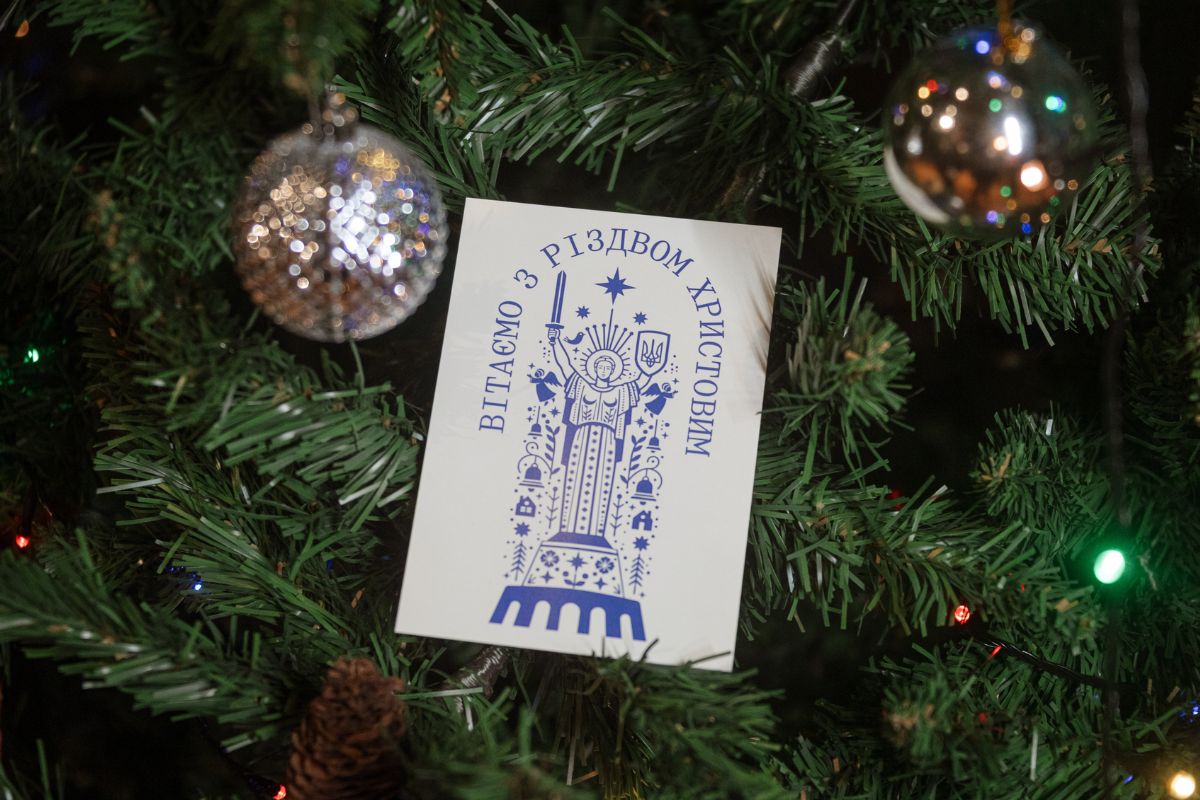On July 25, a public conversation was held at the War Museum with serviceman Oleksandr Homeniuk. The event was dedicated to the Day of the Medical Worker in Ukraine. In civilian life, Oleksandr is a pediatric orthopedist; after the start of the full-scale invasion, he became a combat medic with the General-Khorunzhyi Marko Bezruchko 110th Separate Mechanized Brigade. The discussion was moderated by War Museum researcher Liubov Krupnyk, and journalist and Oleksandr’s wife, Tetiana Shpaikher, took part as a co-speaker.
The guest spoke about his youth and his passion for Ukrainian scouting. In 2000, Oleksandr, together with his brother, took the oath in “Plast”. As the soldier noted, the experience gained was a true school of life, where he acquired practical survival skills and received national-patriotic education.He met his future wife Tetiana also thanks to a youth organization – the Society of Ukrainian Catholic Students “Obnova”. Their son Yarema is also a “Plast” member, like his father.
With the start of Russia’s full-scale invasion in 2022, Oleksandr volunteered for the army, joining a medical company in the city of Avdiivka that same year. He left the city only after the forced withdrawal of Ukraine’s Defense Forces in 2024.
From the beginning of his service, he kept a diary, and later compiled part of his notes into a book about the daily realities of war. “Fragments from Avdiivka. Instead of Fairy Tales for My Son” is the address of a loving father to his son across space and time. The pages depict the deserted streets of the city, the sounds of shelling, and amid the chaos – a medic saving the wounded.
The idea of publishing the book was supported by the publishing house “Iron Father”, which now prints veteran literature. Its founder, Dmytro Savchenko, is currently defending Ukraine.
The book was first presented in Vienna (Austria) in February this year. According to the author, it found its readers abroad. Today, his memoirs are an important testimony of the path our soldiers walk – not only for Ukrainians but also for foreigners.
We sincerely thank Oleksandr Homeniuk and Tetiana Shpaikher for their candid conversation, devoted service, and for the opportunity to preserve and comprehend the living history of our struggle at the Museum.
